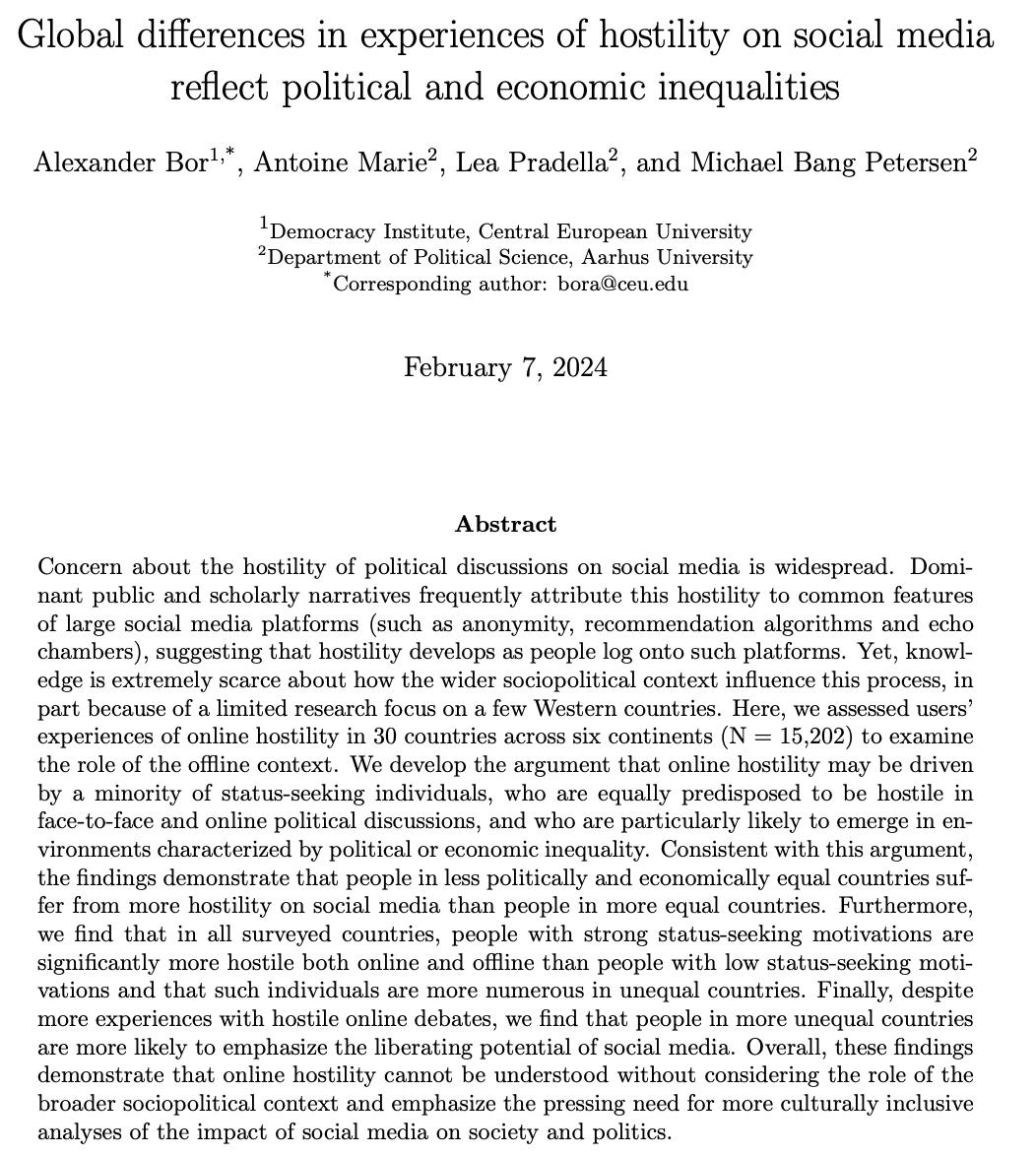In spring '21 vaccine acceptance rose as vaccines were rolled out.
Then came news of rare but severe side-effects from the AstraZeneca vaccine.
Our new paper shows that this caused international vaccine hesitancy: doi.org/10.1016/j.vacc….
A thread on what can be learned🧵(1/9)
Then came news of rare but severe side-effects from the AstraZeneca vaccine.
Our new paper shows that this caused international vaccine hesitancy: doi.org/10.1016/j.vacc….
A thread on what can be learned🧵(1/9)

In March '21, news emerged about blood clots following vaccination with AZ (science.org/content/articl…). Public attention grew strongly when 3 Nordic countries suspended the use of the vaccine altogether on March 11, as seen from this plot of search volumes. (2/9) 

A previous study concluded that this suspension didn't create hesitancy: ugeskriftet.dk/dmj/sustained-…. Yet, this study compared hesitancy from two time points a month apart. If vaccine acceptance was trending upwards, this may be a problematic analysis strategy. (3/9)
On the week March 11, we tracked daily rates of vaccine acceptance in 8 countries:🇩🇰🇭🇺🇮🇹🇺🇸🇩🇪🇸🇪🇬🇧🇫🇷. In prior months, acceptance *had* been rising (blue dots) in all countries with the succesful roll-out. Some countries suspended the vaccine a few days later. Others didn't. (4/9) 

Across all countries, acceptance was 8 %-points lower following the suspension relative to March 10. The effect was driven by countries that ended up suspending themselves. Acceptance in these countries took two hits: One on March 11 and one when they suspended themselves. (5/9) 

What can be learned? Should authorities be less public about this? Certainly not. Transparency is key for upholding trust (doi.org/10.1073/pnas.2…), which again is key for public support for the overall vaccination program (incl., e.g., boosters) (bmjopen.bmj.com/content/11/6/e…). (6/9)
That the effect is limited to countries that suspended suggests that it depends on being part of the same info eco-system (e.g., reliance on EMA). This shows how crucial rapid information sharing is to help the authorities in other countries communicate effectively. (7/9)
Information should be shared both about the discoveries but also about the strategy. What are the specific considerations behind the suspension? One country's decision will depend on many local factors, which may not apply elsewhere: thelancet.com/journals/lance…. 👇 (8/9) 

Worst, the news reached the developing world too: apnews.com/article/europe…. Adding hesitancy to vaccine inequity is unacceptable.
During a pandemic one country's actions will affect everyone else. We are in this together & responses need to reflect this at every step. (9/9)
During a pandemic one country's actions will affect everyone else. We are in this together & responses need to reflect this at every step. (9/9)

• • •
Missing some Tweet in this thread? You can try to
force a refresh













